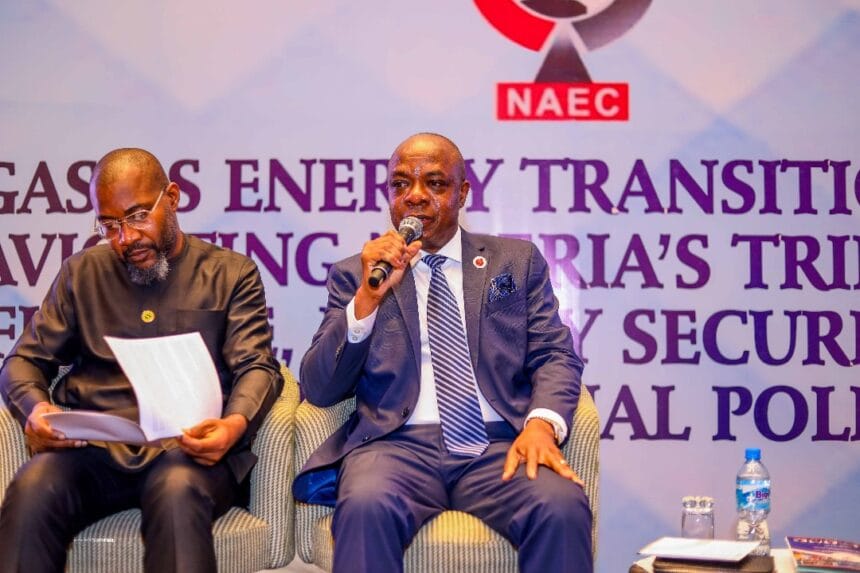…failure to boost oil and gas production will continue to weaken Naira, deepen energy poverty – Ogunsanya warns
Oredola Adeola
Engr. Wole Ogunsanya, Chairman of the Petroleum Technology Association of Nigeria (PETAN) has emphasized that Nigeria’s sustainable development and economic growth depend heavily on leveraging oil and gas revenue for infrastructure investment. In two sentences.
Ogunsanya who also doubles as Managing Director of Geoplex Drillteq Limited made this statement during the first panel session at the 2024 NAEC Annual Strategic International Conference, organized by the Association of Energy Correspondents of Nigeria (NAEC) at Eko Hotel, Victoria Island, Lagos.
Speaking as a panelist during the session themed ‘Actualising Nigeria’s Energy Transition: Driving Investment, Energy Security, and Sustainable Development’, the PETAN Chairman stressed that strategic investments in infrastructure, funded by these revenues, would enhance productivity and improve the overall quality of life for Nigerians.
He stated that tackling challenges within the oil and gas sector, reducing the importation of petroleum products, and implementing strategic initiatives will drive the country toward energy self-sufficiency.
Ogunsanya further explained that if Nigeria fails to produce its oil and gas and sustain the value chain domestically, the Naira will continue to weaken, and energy poverty will worsen.
The PETAN Chairman stressed the importance of addressing challenges in the energy sector and harnessing opportunities, particularly in gas production, to move the country towards energy self-sufficiency.
According to him, Nigeria does not have sufficient energy in circulation, making it imperative to focus more on gas, which could help the nation become energy-independent and bolster its economy.
He highlighted the need to increase Nigeria’s proven gas reserves, currently estimated at approximately 200 trillion cubic feet, to reduce reliance on imports and strengthen the naira.
“We must understand the basic economic principle that your balance of trade is the difference between what you produce and what you import.
“When you import more than you produce, it leads to a negative balance of trade, which weakens your currency. This is the challenge Nigeria is facing today,” he explained.
Ogunsanya further noted that gas, as a cleaner and more efficient energy source, offers a strategic advantage for domestic utilization, reducing dependency on imported fuels, generating significant revenue, and creating jobs.
He pointed out that countries like the United States, now the world’s largest producer of oil and gas, have successfully invested in renewable energy sources such as solar power, while still leveraging their oil and gas reserves.
“Nigeria needs to focus on gas as a key energy resource. Although we may not yet have the technology to fully embrace battery-powered vehicles, gas is a viable, less carbon-intensive alternative that can drive our economic growth and support global efforts toward cleaner energy,” Ogunsanya concluded.




